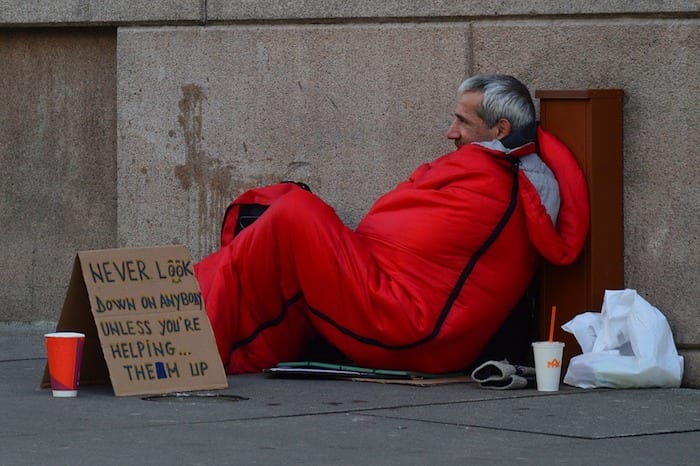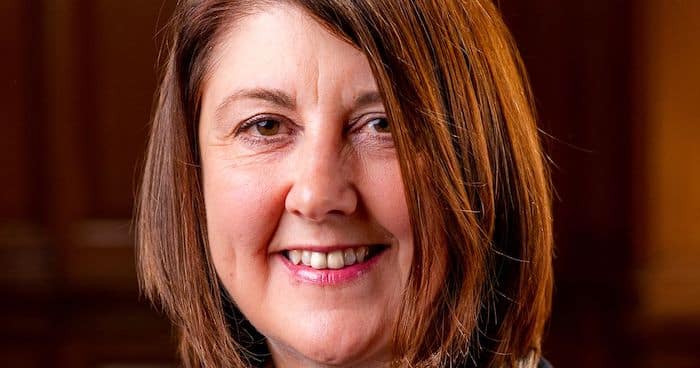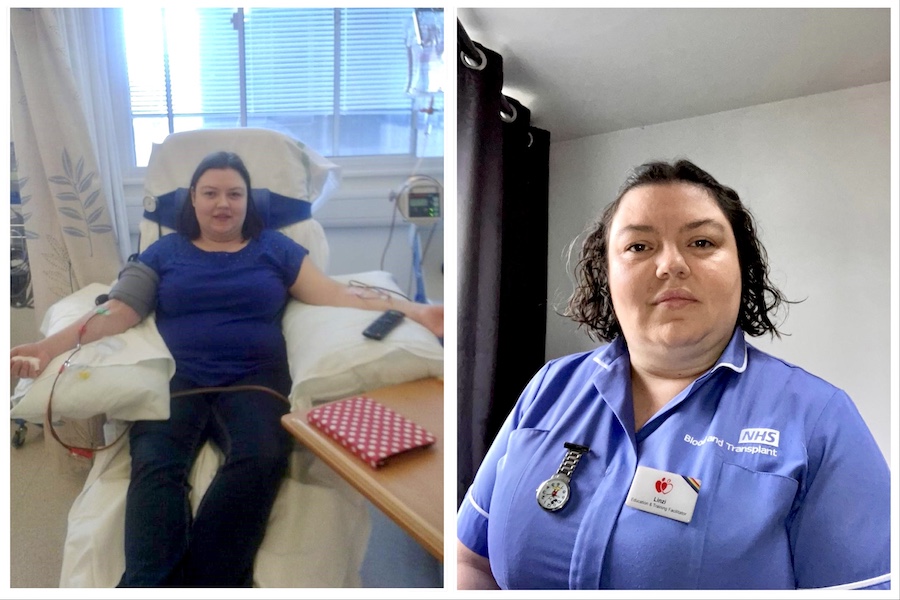Council launch homelessness action plan ‘A Place Called Home’ as Manchester tops list of most rough sleepers in North West
- Written by Thom Bamford
- Last updated 2 years ago
- Community, People, Uncategorized

And unfortunately, topping the list of areas with the most homeless people, is Manchester.
7,407 people were recorded as homeless or living in temporary accommodation according to Shelter statistics released today.
They estimate up to 43 people are sleeping rough on Manchester’s streets every night.
Bleak statistics as the cold and wet weather rages through the start of January.
The number of homeless applications opened by Manchester increased by 54% between 2018/19 and 2021/22. Manchester opened 23% more homeless applications than Birmingham, 24% more than Leeds and 92% more than Sheffield.
Shocking numbers, without a doubt.
Polly Neate, chief executive of Shelter, said: “The new year should be a time of hope, but this isn’t the case for the over 14,600 homeless people in the North West who are facing a truly bleak 2023.”A cold doorway or a grotty hostel room is not a home, but this is reality for too many people today.
“Our frontline advisers are working tirelessly to help people who are desperate to escape homelessness – from the parents doing all they can to provide some shred of a normal family life while stuck in an emergency B&B, to the person terrified of another night sleeping rough.
“With private rents and living costs continuing to soar, thousands of people are not just facing a winter of worry, they are at risk of losing the roof over their head.”At Shelter, we are bracing ourselves for a sharp rise in homelessness in 2023. More than ever, we will be relying on the public’s generosity to help us support and campaign for all those fighting for a safe home.”
Shelter’s new research also reveals the areas across the North West where homelessness is most acute. Manchester comes out worst, with one in 74 people homeless, one in 279 people are homeless in Salford, followed by Oldham where one in 366 people are homeless.I Love MCR reached out to Manchester City Council to get their take on the issue in town.
You can donate to help Shelter here.

Councillor Joanna Midgley, Deputy Leader of Manchester City Council said: “We are working hard, together with a range of partner organisations, to help people who are at risk of, or experiencing, homelessness.
“We are clear and open about the challenges, which aren’t getting any easier in the context of the ongoing impacts of austerity, Covid and the cost of living crisis.
“But we are also clear about how to address them and have set out a number of actions to expand our homelessness prevention work, find alternatives to temporary accommodation, support more people to move into settled homes and improve outcomes for people facing or experiencing homelessness.
“Our housing strategy is also helping to address the wider picture by delivering 10,000 new social and affordable homes over a decade.”
The Council has developed a transformation plan, ‘A Place Called Home’, to address homeless related challenges with the plan being framed around four key priorities:
• Significantly increase the successful prevention of homelessness
• Continue our progress to end rough sleeping
• Considerably reduce the use of temporary accommodation
• Deliver Better Outcomes and Better Lives for people and families at risk or who are homeless
The council are looking at strengthening early support and advice, encouraging people to seek help earlier when there is more the council can do before people find themselves on the street.
They are also looking at enabling people to get higher priority for social housing without having to go into temporary accommodation. This will allow people either to remain in their present accommodation or move into private sector accommodation as alternatives to temporary accommodation.
Through the Rough Sleep Accommodation Programme, they are investing in 200 units of extra temporary accommodation units. There will also be 100 supported housing units funded through the Supported Housing Action Programme, increasing rents paid to landlords to help secure and retain more temporary accommodation.
The focus for the council now as they transform their homelessness service is so significantly increase prevention efforts.
You can read the Councils full report ‘A Place Called Home’ here.
- This article was last updated 2 years ago.
- It was first published on 11 January 2023 and is subject to be updated from time to time. Please refresh or return to see the latest version.
Did we miss something? Let us know: press@ilovemanchester.com
Want to be the first to receive all the latest news stories, what’s on and events from the heart of Manchester? Sign up here.
Manchester is a successful city, but many people suffer. I Love Manchester helps raise awareness and funds to help improve the lives and prospects of people across Greater Manchester – and we can’t do it without your help. So please support us with what you can so we can continue to spread the love. Thank you in advance!
An email you’ll love. Subscribe to our newsletter to get the latest news stories delivered direct to your inbox.
Got a story worth sharing?
What’s the story? We are all ears when it comes to positive news and inspiring stories. You can send story ideas to press@ilovemanchester.com
While we can’t guarantee to publish everything, we will always consider any enquiry or idea that promotes:
- Independent new openings
- Human interest
- Not-for-profit organisations
- Community Interest Companies (CiCs) and projects
- Charities and charitable initiatives
- Affordability and offers saving people over 20%
For anything else, don’t hesitate to get in touch with us about advertorials (from £350+VAT) and advertising opportunities: advertise@ilovemanchester.com


Review: Tambo & Bones at HOME is ‘ambitious, bold, gutsy…. and terrific’

Review: JB Shorts 26 at 53two is ‘a five-star showcase of northern talent’



















